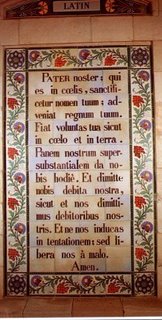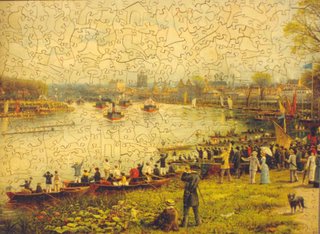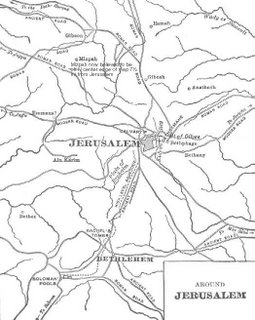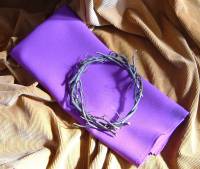
When I played football for the Brantley High Bulldogs, we always huddled up before each game and said the Lord’s Prayer. Then we went out to kill our opponent – or at least do as much serious bodily harm as we could. We recited that prayer because our coach, Coach Orville Eubanks was a good Methodist and a man of prayer.
Well, what is it that prayer that is so special? What makes it better than the Prayer of Moses or the prayers of David or the “Prayer of Jabez?” The answer is that it came from Jesus, Himself, thus from the mouth of God to our ears! Perhaps we ought to hear it.
The version in today’s lesson of the Model Prayer or “Lord’s Prayer” is taken from Luke 11. Luke gives us a shortened version of the longer prayer that Jesus prays in Matthew 5 as a part of the Sermon on the Mount. The famous prayer is also known as the Paternoster, the “Our Father.” As recited, it would be
 Pater noster,¨ qui es in caelis,¨ sanctificetur nomen tuum:¨ adveniat regnum tuum:¨ fiat voluntas tua, sicut in caelo, et in terra.¨ Panem nostrum quotidianum da nobis hodie:¨et dimitte nobis debita nostra,¨ sicut et nos dimittimus debitoribus nostris.¨Et ne nos inducas in tentationem:¨ sed libera nos a malo. Amen.
Pater noster,¨ qui es in caelis,¨ sanctificetur nomen tuum:¨ adveniat regnum tuum:¨ fiat voluntas tua, sicut in caelo, et in terra.¨ Panem nostrum quotidianum da nobis hodie:¨et dimitte nobis debita nostra,¨ sicut et nos dimittimus debitoribus nostris.¨Et ne nos inducas in tentationem:¨ sed libera nos a malo. Amen. But before concentrating of the Prayer, let’s look briefly at Luke, the book. While Matthew was one of the Twelve and wrote his book addressed to the Jews, Luke was Gentile, in fact the only Gentile privileged to be included as a writer of the New Testament. Tradition has it that Luke, who as we all know was a doctor, was also a skilled painter, thus he would have had an eye for beautiful things. Perhaps for this reason, Barclay in The Gospel of Luke calls Luke the “Lovely Gospel.” Luke is without a doubt a universal gospel addressed to all people. It portrays Jesus as the Blessed Sacrifice. Luke is a gospel that takes special note of the acts of women (an uncommon idea in that day), takes special note of the importance of praise to God, takes special caring note of sinners, outcasts and the poor and, for our purposes here takes special note, with the historian’s care, of the prayers of Jesus.

Luke demonstrates the importance of prayer in the life of Jesus: at His baptism (3:21); before doing battle with the Pharisees (5:16); before questioning the disciples as to His identity and the first prediction of His death (9:18); at the Transfiguration (9:29); and on the cross (23:46.) Interestingly enough Plummer points out in his commentary, that up until this point in the Gospel of Luke, the emphasis is on the prayer life of Jesus. After here, we begin to see the prayer life of the disciples emerge and come to full fruition in Acts, also of course written by Luke. Thus, we see the prayer continuum.
Today’s lesson takes the Model Prayer and holds it out to us as just that - a model. In summary, Jesus teaches his disciples and us, that indeed we should pray and “as you pray,” pray intentionally, pray persistently and pray expectantly.
In an Internet article entitled “Jesus on Prayer” by Dr. Donald T. Williams, in a sermon presented at Trinity Fellowship, Dr. Williams wonders why though prayer is so often urged on us, we have such difficulty in doing it. He suggests as an answer that perhaps we are viewing prayer wrongly.
Prayer at its best is a dialogue, a conversation between us and God. Did you hear that – between lowly us and the God of the universe? Though this is true, it is difficult, to keep this in mind. When we have a conversation with a friend, we get “feed-back.” Dr. Williams observes:
[t]hrough words, tone of voice, facial expression, and body language I have objective evidence of how my friend feels about what I have said--or whether she is even listening. With the invisible God there is none of that. To believe that prayer is more than a monologue requires a constant exercise of faith.
And failing that, we launch into the monologue of requests. I fear that sometimes such praying, though good is not the best because it seems that the focus has been on those things that we need or want to get from God and that can certainly be seen that as selfish praying.
Perhaps my impression of this type of prayer is influenced by my studying philosophy at the University of Montevallo with Prof. Hendrick Van Tuyll, a Dutch Baron and last of the old world philosophers. (We think Dr. Van Tuyvll actually studies with Immanuel Kant.) Dr. Van Tuyll was a minister in the Dutch Reform Church and taught that our prayers should always be prayers of recognition of God and praise and thanksgiving to Him. Dr. Van Tuyll believed that since God of course, already knew what we needed and wanted to give us what we needed and not what we wanted, then the thing to do is trust those things to God and not spend much time praying on it.
Well, be that as it may, perhaps we ought to spend the time on the totality of prayer, not for God’s benefit but for ours. I submit that we need to go through the exercise of prayer because in the honest, fervent prayer, God will speak to us (thus the dialogue) and set our thinking aright, thus adjusting our “wants” to our real “needs.” When we learn to distinguish those two things, we begin to have in us the “mind of Christ” about which Paul speaks in Philippians 2:5. Besides which, Jesus clearly and unabashedly teaches us to, as Paul would put it also in Philippians (4:6), “by prayer and supplication with thanksgiving, make your requests known unto God.”
 Pray Intentionally (Luke 11:1-4).
Pray Intentionally (Luke 11:1-4).Why did the disciples ask Jesus to teach them to pray? Were they not good Jews who prayed three times a day already? For starters, there was custom of the Jewish students that their Rabbi should give them a special prayer that distinguished his particular teaching. They were quite familiar with John the Baptist, indeed some may have previously been disciples of John’s. He taught them to pray. They follow that custom here.
If this passage comes, as Matthew has it, in the Sermon on the Mount, then they would have recognized in Jesus a man of great oratorical ability that to them equated to great spiritual power and knowledge. Secondly, they have recognized in Jesus a prayer life that was different from that to which they have become accustomed. As I stated earlier, these is no particular indication that the disciples were great men of prayer. It may be that they recognized this as a deficiency in their lives. So, in the Jesus-commanded child like open-mindedness, they say, “teach us to pray.”
Perhaps the over-riding thought here is not so much how you pray but THAT you pray. I would submit that as you pray in sincerity, God will lead you to “pray aright.” .
Bob Diffinbaugh from Dallas Theological Seminary, in his work on prayer points out that the prayer Jesus gives in vv. 2-4 is merely the skeleton of a prayer. We can then take this not as the “end-all, be-all on prayer, but the highlight of supplication. This is teaching on supplication. In other places we see Jesus giving examples of prayers of intercession. Perhaps, before we can intercede for others, though we must first understand what prayer is. Here Jesus teaches about the most basic form of prayer, that of supplication. But as we will see in the analysis of the prayer, Jesus has a method in His teaching. Jesus is saying “when you pray [make your requests known unto God, as Paul would say] do it this way.
This little piece of a prayer, then can be summarized as follows:
“
Our Father which art in Heaven. . .” Acknowledge the relationship that God is Abba-Father, and Father of us all, yet the “Heavenly Father” who exhibits all the attributes of God.
“
Hallowed [holy, blessed, set apart, different from everything else in the universe]
IS (KJV uses “be” but not in the sense of some future hoped for event but in the sense of a present reality)
Your name." Here we are recognizing that God is God and we aren’t. He is infinitely greater than we and that realization is the sine qua non to setting us on the path to right thinking and right “supplicating.”
"
Your kingdom come, your will be done in Earth as it is in Heaven.” Request that His Kingdom [the “mind of Christ” will come [in your heart] and when it does He will begin to adjust your heart to conform it to His heart. When that happens, your will must be lost in His will and He will likewise adjust your way of thinking and viewing.
“Give us this day our daily bread.” Voice your requests to your Father. Here is where the listening comes in. As our will is lost in His, our wants and desires, the daily needs of life, will be matched to His desires for us and we will see His will done. We will receive that which He wants to give us and we will be satisfied with it because now it has become our desire as well.
“Forgive us our debts as we forgive our debtors.” Here enters the confession. As we are praying to be forgiven of these sins, we must confess them and then ask for forgiveness of sin, and
“
Lead us not into temptation.” Plead for protection from [falling into] temptation realizing that temptation is a wolf always at the door. That is to say that we should ever be mindful that temptations or “tests” will come, not that God “tempts” us to do evil, but that tests will come. The prayer here is that we pass the test. The way to pass the test is related to the foregoing parts of the prayer. Allow the “kingdom of God” in our hearts and recognize that we are weak and that we will only keep above sin by God’s provision to us .
“
But deliver us from [the Evil One.]" One commentator states that “we must be praying for insight into the evil that we, as good people with good intentions, might nonetheless do, and also for the strength to confess our sin, to repent, and to forgive others.” 1 Peter 4:7 tells us that Satan roams the Earth like a “raging lion seeking whom he may devour.” Our prayer here is that we will allow God to give us, as He wants to, a view of evil influence and then allow Him to keep us above that influence in our lives, something else He always wants to do.
Pray Persistently. (Luke 11:5-10) Jesus moves on to explain Himself further to make sure they get the point. He wants them to [and they, and we need to] pray persistently. Jesus follows the skeletal prayer with a parable, one that would be familiar to Jesus’ disciples. At certain times of the year because of the heat at mid-day, travelers often traveled at night. A friend has arrived in the middle of the night and the host needs food to feed him. Remember the time and the custom of the area. Since there were no Holiday Inns or even Motel 6s to “leave the lights on for us,” hospitality was a sacred duty. The host had to get some food – but the cupboard was bare, perhaps as bare as his poor Palestinian house with one room and an earthen floor covered with dried reeds or rushes.
The neighbor has bedded down for the night with all the family literally no more than arms length away. Perhaps some of the livestock was also in the house. To be disturbed was a major annoyance in that day and age. Nevertheless, the erstwhile host petulantly asks and asks for a handout until he achieves success and is satisfied. Jesus uses this parable a “story laid along side a truth” to illustrate the truth. In like fashion to many such other parables He uses the a fortiori argument (as we lawyers would say) arguing that though the thing requested is given by the annoyed neighbor, how much more so does our Father in Heaven give to those whom He loves. – if we persist in prayer.
Jesus follows the story with the famous quote, that to whoever [keeps on asking] it will be given – whoever [keeps on] looking will find and to whoever [keeps on] knocking, the door will be opened. The consistent clause here is demonstrated in the tense of the words written in the Greek [uttered by Jesus in Aramaic] which supplies the “keeps on” before the verb. There is a favorite children’s story that we used to read to our daughter, Amy when she was little, B. Shackman Company’s version of the antique original children’s bedtime story by Harry Frees, “Four Little Kittens,” whose chief characters are: Fuzz, Suzz, Buzz, Agamemnon. In the book, the kittens learn that “perseverance pays off.”
This concept, though does raise a couple of questions about prayer: if God is omniscient, and He is, then why must we make our wishes or supposed needs known to Him and secondly, if He is omniscient, and He is why must be persistently ask Him for things? Perhaps the answer lies in the mechanism of prayer as a means of keeping in touch with God constantly. Our need for things is a vehicle to keep us close to God. When we persistently ask, we “keep on” recognizing that without Him we have -and are- nothing. It’s not about the “stuff,” even good stuff, it’s about the relationship.
Pray Expectantly (Luke 11:11-13). Jesus continues the a fortiori argument by asking:
'if your children asked [Some manuscripts add for bread],
do you give them a stone? Or if they ask for a fish, do you give them a snake instead? Or if they ask for an egg, do you give them a scorpion? Of course not! If you sinful people know how to give good gifts to your children, how much more will your heavenly Father give the Holy Spirit to those who ask him."
Isn’t it presumptuous to “expect” that God is going to do what we tell Him to do? I think the answer is both “yes” and “no.” Note carefully what He says is the outcome. He promises that He will “give the Holy Spirit” to those that ask. Can we expect God to do what we expect Him to do” No, but can we expect God to do what He promises He will do? Absolutely. In fact, the expectation is a major portion of faith. T.W. Hunt teaches in his book,
From Heaven’s View that the expectation that God will do what He says He will do is part and parcel of faith. First God says it, then you believe or give intellectual assent to it, then you must count it as done. That amounts to expectation. That must come before you take the final step of faith that is to “go out on the limb” and act in reliance on God doing what He says He will do.
Another question, why must we pray expectantly? The answer to this is related to the previous answer. Henry Blackaby would say that this is not about the stuff, it’s about the relationship. When we ask for things, we acknowledge to God that we are incomplete without Him and need Him. When we are able to turn over our expectations to Him, we take a big step in growing in that relationship. And that is the biggest blessing of all.
 The Supper Is More Than a Ritual (Luke 22:14-20). See [da Vinci’s Famous “Last Supper]
The Supper Is More Than a Ritual (Luke 22:14-20). See [da Vinci’s Famous “Last Supper]  “Remember Me, I’m the One Who Loves You.” By comparison, the Dean Martin song is trite compared to the love of Christ. But the messages ring harmoniously.
“Remember Me, I’m the One Who Loves You.” By comparison, the Dean Martin song is trite compared to the love of Christ. But the messages ring harmoniously. Greatness Comes Through Serving (Luke 22:24-27)
Greatness Comes Through Serving (Luke 22:24-27) Satan Wants You to Fail (Luke 22:31-34).
Satan Wants You to Fail (Luke 22:31-34). Now for the Good News. The Good News is that Christ intends for this fellowship to be unbroken and He stands more than “ready, willing and able,” rather He stands “lusting,” if I may use that word here, to restore us to fellowship as He did Peter by the Sea of Galilee. And this is something would should remember, too.
Now for the Good News. The Good News is that Christ intends for this fellowship to be unbroken and He stands more than “ready, willing and able,” rather He stands “lusting,” if I may use that word here, to restore us to fellowship as He did Peter by the Sea of Galilee. And this is something would should remember, too.














